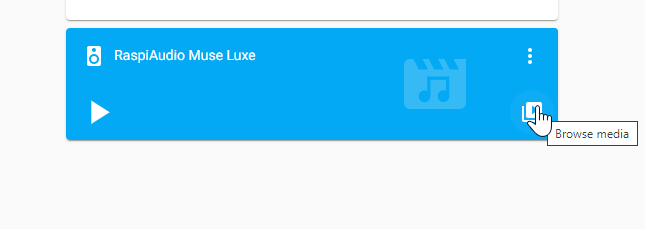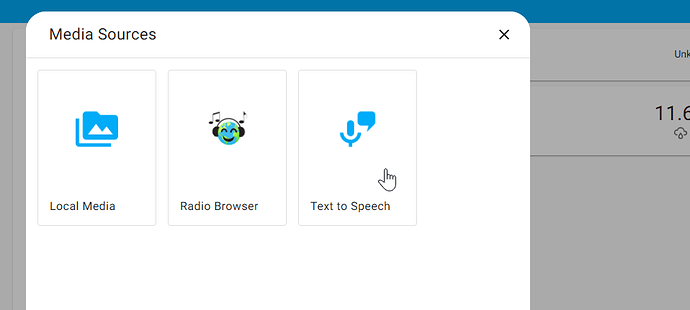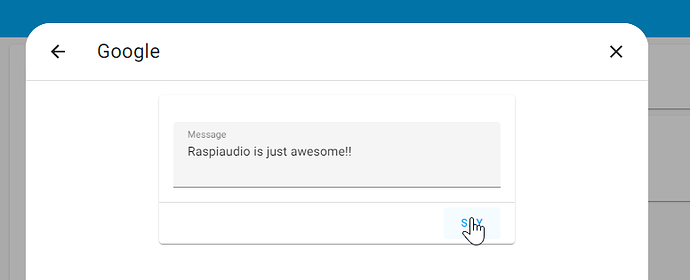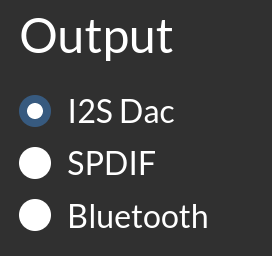Thanks. Adding some info from Validate in ESP Home if that can help you debug. xxx:ed my wifi credentials:
INFO Reading configuration /config/esphome/raspiaudio-muse-luxe-392570.yaml…
INFO Updating https://github.com/esphome/esphome.git@pull/3552/head
WARNING GPIO12 is a Strapping PIN and should be avoided.
Attaching external pullup/down resistors to strapping pins can cause unexpected failures.
See https://esphome.io/guides/faq.html#why-am-i-getting-a-warning-about-strapping-pins
INFO Configuration is valid!
substitutions:
name: raspiaudio-muse-luxe-392570
friendly_name: RaspiAudio Muse Luxe
wifi_ap_password: ‘’
esphome:
name: raspiaudio-muse-luxe-392570
name_add_mac_suffix: false
project:
name: raspiaudio.muse-luxe
version: ‘1.0’
build_path: .esphome/build/raspiaudio-muse-luxe-392570
platformio_options: {}
includes: []
libraries: []
esp32:
board: esp-wrover-kit
framework:
version: 1.0.6
source: ~3.10006.0
platform_version: platformio/espressif32 @ 3.5.0
type: arduino
variant: ESP32
logger:
baud_rate: 115200
tx_buffer_size: 512
deassert_rts_dtr: false
hardware_uart: UART0
level: DEBUG
logs: {}
api:
port: 6053
password: ‘’
reboot_timeout: 15min
ota:
safe_mode: true
port: 3232
reboot_timeout: 5min
num_attempts: 10
i2c:
- sda: 18
scl: 23
frequency: 50000.0
scan: true
dashboard_import:
package_import_url: github://esphome/media-players/raspiaudio-muse-luxe.yaml@main
wifi:
ap:
password: ‘’
ap_timeout: 1min
domain: .local
reboot_timeout: 15min
power_save_mode: LIGHT
fast_connect: false
networks:- ssid: xxxxxx
password: xxxxxx
priority: 0.0
use_address: raspiaudio-muse-luxe-392570.local
captive_portal: {}
improv_serial: {}
external_components:
- ssid: xxxxxx
- source:
url: https://github.com/esphome/esphome.git
ref: pull/3552/head
type: git
components:- es8388
refresh: 0s
media_player:
- es8388
- platform: i2s_audio
name: RaspiAudio Muse Luxe
i2s_lrclk_pin: 25
i2s_dout_pin: 26
i2s_bclk_pin: 5
mode: stereo
mute_pin:
number: 21
inverted: true
mode:
output: true
input: false
open_drain: false
pullup: false
pulldown: false
disabled_by_default: false
dac_type: external
es8388:
address: 0x10
binary_sensor: - platform: gpio
pin:
number: 19
inverted: true
mode:
input: true
pullup: true
output: false
open_drain: false
pulldown: false
name: RaspiAudio Muse Luxe Volume Up
on_click:- then:
- media_player.volume_up: {}
min_length: 50ms
max_length: 350ms
disabled_by_default: false
- media_player.volume_up: {}
- then:
- platform: gpio
pin:
number: 32
inverted: true
mode:
input: true
pullup: true
output: false
open_drain: false
pulldown: false
name: RaspiAudio Muse Luxe Volume Down
on_click:- then:
- media_player.volume_down: {}
min_length: 50ms
max_length: 350ms
disabled_by_default: false
- media_player.volume_down: {}
- then:
- platform: gpio
pin:
number: 12
inverted: true
mode:
input: true
pullup: true
output: false
open_drain: false
pulldown: false
name: RaspiAudio Muse Luxe Play Button
on_click:- then:
- media_player.toggle: {}
min_length: 50ms
max_length: 350ms
disabled_by_default: false
light:
- media_player.toggle: {}
- then:
- platform: fastled_clockless
name: RaspiAudio Muse Luxe
pin: 22
chipset: SK6812
num_leds: 1
rgb_order: GRB
disabled_by_default: false
restore_mode: RESTORE_DEFAULT_OFF
gamma_correct: 2.8
default_transition_length: 1s
flash_transition_length: 0s






